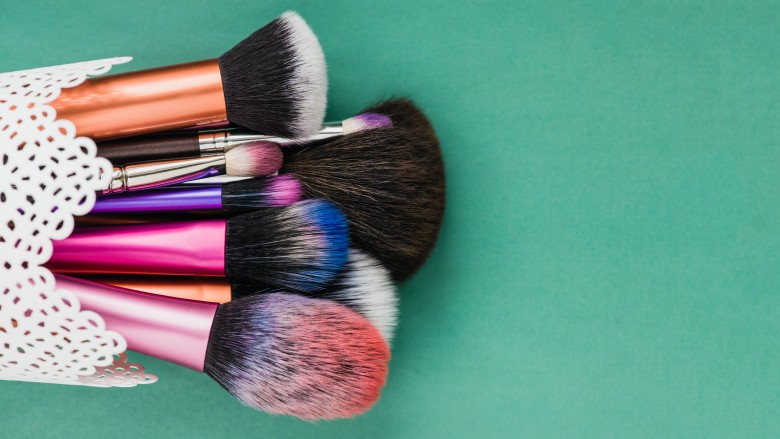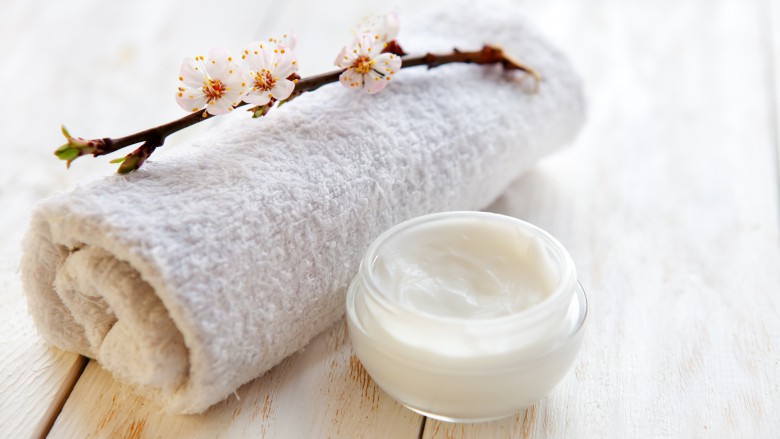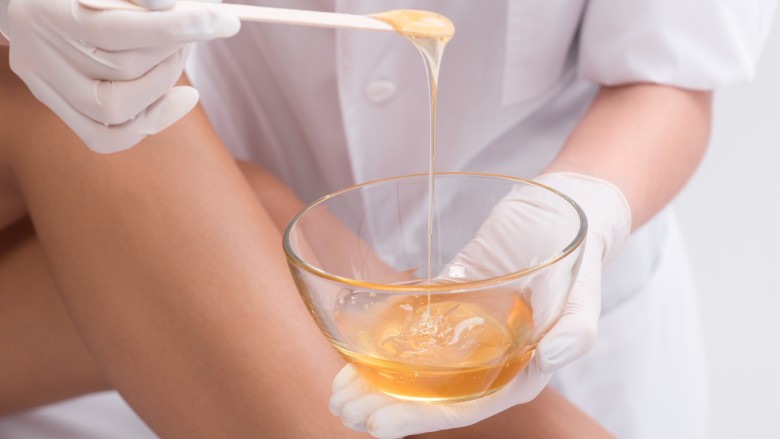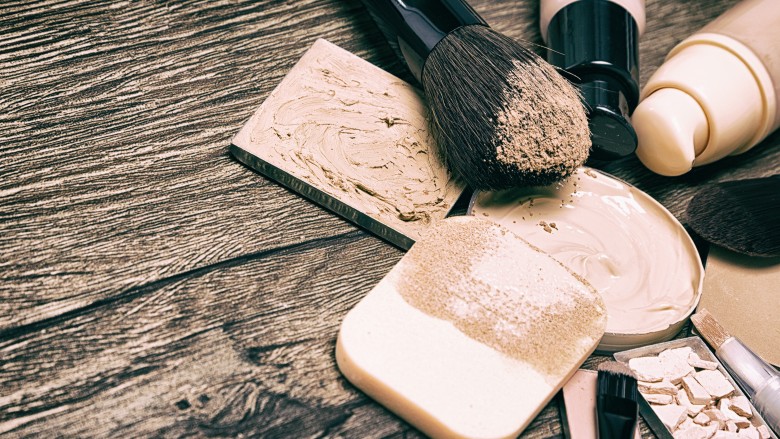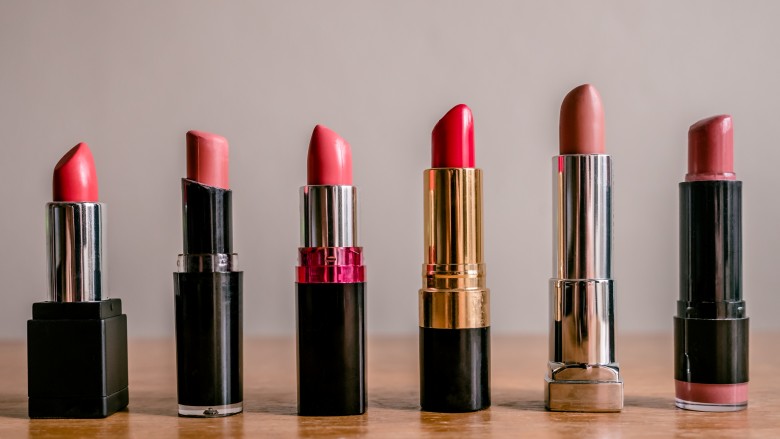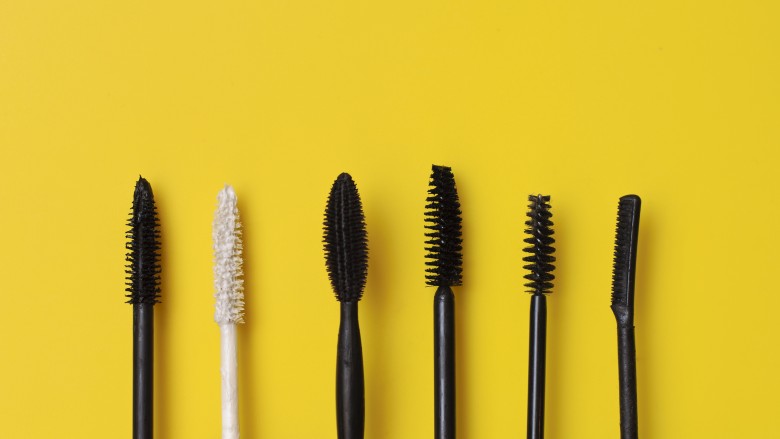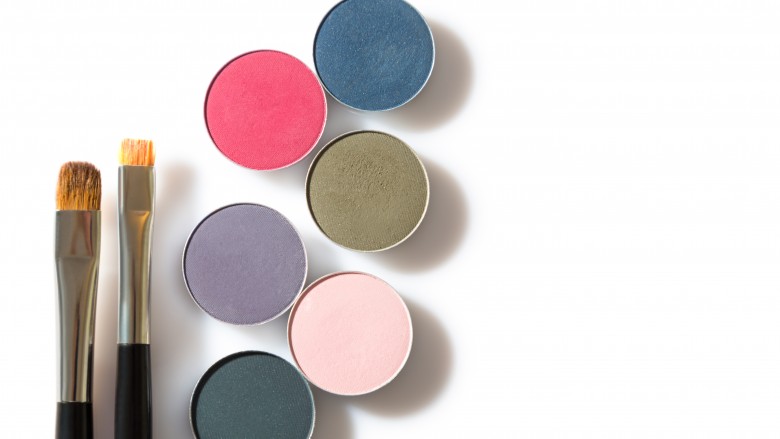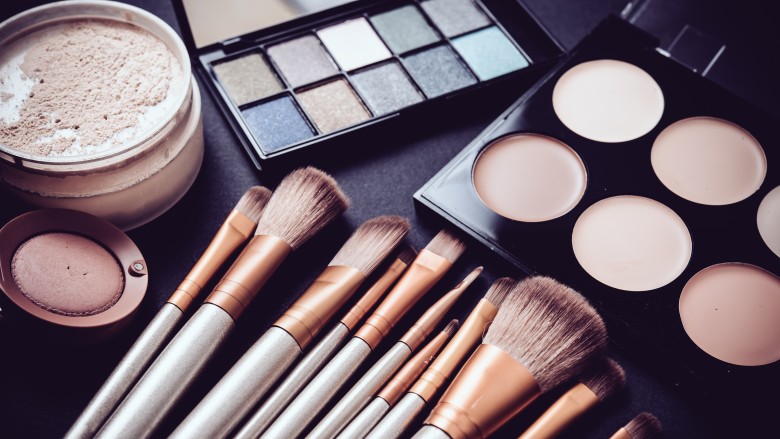Reasons You Shouldn't Share Beauty Products
Whenever you get together with friends to get ready to go somewhere, you know the drill. A group is clustered around a mirror close to an outlet, trying to not block each other's view while drying and styling their hair. Another group is clustered in the bathroom or around another mirror, working on makeup. Whether it's a once in a lifetime event, a big night out, or just a relatively normal day, those moments, being with friends, singing along to music, making yourselves look (even more) beautiful are fun, special, and memorable.
It's almost certain, however, that over the course of one of these experiences, a few friends will swap beauty products, sharing their favorites with their favorite people, and doing something that is friendly and nice. A friend will toss you some eye shadow in the perfect shade, another will apply their eyeliner to a friend's eyes, someone over the course of the night will borrow someone else's lipstick. And while most women were taught at some point that sharing mascara is probably not the best idea, we hand over these items or gratefully accept them without even thinking about it. Should we really be sharing beauty products?
Beyond the safety of doing so, does it even make sense? Are we doing ourselves a disservice, using products we didn't purchase, that may not take into account our specific skin tone or texture? As it turns out, contamination and mismatched makeup are real problems, but there are, in fact, some products that should be able to be shared without too much concern. Knowing the difference will not only (ideally) keep you healthy, but also looking your best.
General viruses and bacteria
Brushes, sponges, and applicators should really never be shared if you can avoid it. Why? Brushes can be a concern when it comes to viruses and bacteria. Dr. Adriana Schmidt, a dermatologist at the Santa Monica Dermatology Medical Group in Santa Monica, California, explained that "... some people are staph carriers, so they have more staph on their skin than other people. So, you don't know who those people are." Staph carriers have a greater concentration of staph per square inch on their face than other people. They can spread a staph infection (unintentionally, of course) when others touch things they've touched or share belongings like towels or makeup brushes at home.
Additionally, little pots of creams and moisturizers can get contaminated by so many hands going into the same product. Shara Strand, the makeup artist behind Shara Makeup Studio in New York City, told me that if it's men that are dipping in to their partner, friend, or sibling's moisturizer, it's probably okay as there aren't many things on the market that would be detrimental to men's skin. Additionally, it's important to remember that there are ways that things like face cream—where you dip your fingers into a pot and apply it to your face with your hands—can be applied more hygienically, whether you're sharing or not.
"I would always recommend washing your hands really well before you dip into any pot, even if you're the only one using it, just because the germs from the day are still on your hands, so you just want to wash really well. I think as long if the two people who are using the pot are really clean before they go in, then it's okay," Strand said. While you may not regularly (until now) stop and wash your hands before slathering on the moisturizer, once you get germs and other contaminants into a product, it's contaminated until you finish the container.
Breakouts
Face cream, moisturizer, and eye cream are a little bit more complicated. Face creams and moisturizers are often shared, especially between partners. "Men are known to overuse women's products. Though they won't buy 'expensive' potions, they are often over indulging in their spouse's creams, where they take dollops instead of small quantities from the jar," Biba de Sousa, the Beverly Hills-based licensed esthetician behind Esthetic Underground and Biba West Hollywood, said.
Smearing a ton of product all over your face, however, probably isn't the best for your skin (or your wallet), especially if the product your dipping into isn't really formulated for your skin type. If you have acne-prone skin, for instance, products that rank high on the comedogenic scale, which measures how pore-clogging an ingredient is, might cause your skin to break out.
What works for one skin type might not work for another. "Different types of products work for different skin types. For example, someone with oilier skin could tolerate a higher strength retinoid, while someone with dry/sensitive skin would need a different formulation/brand. Something that is great for one patient may cause a break out in another; or a reaction such as dermatitis," Dr. Tina West, the dermatologist behind The West Institute in Chevy Chase, Maryland, explained. Something that dries out your skin could irritate it—and actually also potentially cause breakouts in addition to irritated, red, raw skin.
Cross-contamination
While wax isn't technically a beauty product, there are some things you should know. Whether going to a salon or doing an at-home waxing procedure, double dipping into the wax with more than one person using it may be an issue. "Double dipping is when an esthetician reintroduces the stick in the wax after it has been used to apply wax to the skin. This is commonly done when getting waxed in nail salons or places that don't specialize in waxing to cut cost/time," Mandi Dowsey, the salon owner at Waxuality in Ellicott City, Maryland, told me.
"Double dipping cross contaminates the entire pot of wax with hair, skin cells, various bacteria and in some instances blood or other body fluids. Therefore, getting waxed in a salon that practices double dipping is opening you up to risks of serious infections."
It's important to keep this in mind when determining where you're going to go for any waxing. The salon you choose to patronize for professional waxing should use a different wax stick for each application to avoid mixing hair and other potential contaminants and maybe even spreading infections. Cross contamination can be dangerous, not to mention unhygienic.
Mismatched color
Sharing foundation and concealer, if dipping into a pot and applying with your fingers, could be a hygiene-issue, but it's more likely that it will be an appearance and texture issue. "With skin, when someone comes in for a foundation, concealer match, we look at the undertone in the skin and we look at the texture in the skin," Strand said. She elaborated that if you have oily skin, products with a matte finish can be very appropriate, however, if you have dry skin, you might need a hydrating product. In either case, using the wrong kind for your skin can cause unsightly problems. Primers, which are applied under foundation or concealer (to, you guessed it, prime the skin for the application of makeup), can be similarly specific.
Like with concealer and foundation, blush is specific in the sense that the color you use should ideally match the color undertones in your skin. For that reason, Strand said she doesn't recommend sharing blush. Unless you have the exact same skin tone, the color may not be as flattering on you as it is on them.
Strand says there is one product that should be able to be shared (if you have your own brush) and that's setting powder. "[U]sually they're translucent, so a lot of them have like a hint of a color to them," she said. Setting powders help your full face of makeup look more finished. Ideally, they'll match your skin undertones, but, in a pinch, your friend's will work just fine.
Cold sores
While you can certainly end up with an unflattering color if you share lipstick, lip stain, lip gloss, or lipliner with your friends or family members, the reason why you really probably shouldn't share lip products has more to do with hygiene than anything else.
"Don't share lip gloss or lip products," said Hillary Kline, a Minneapolis-based makeup artist and beauty blogger. "We have all been guilty of taking our friend's lip gloss and swiping our lips with that wand. My advice – don't do it. Any sort of product that directly touches the lips runs the risk of infections like cold sores. If anything, purchase disposable lip wands if you feel like 'sharing.'"
Viruses, like the one that causes cold sores, can stick around, making lipsticks, stains, and glosses prime targets for transmitting viruses among a group of people. "Don't share your lipstick because viruses can live on inanimate objects. So if the person gets cold sores, you can also get a cold sore outbreak, which you keep the rest of your life," echoed Dr. Kathy Taghipour, the dermatologist at Savana Urban Spa in London. It's really easy to share lip products without even thinking, especially when you and your friends are out and about, but ultimately it just may not be worth it for any of you.
Eye infections
Most women, when they first start using makeup, are told that sharing mascara is a no-no. This makeup mantra is due to the ease of infection when it comes to the eye.
According to Dr. Alan J. Parks, founder of DermWarehouse, "One of the worst things you can share is mascara or eye makeup. Any eye infections are very contagious (think about how fast pink eye spreads from one person to another). If the person you're sharing with has any eye infection or if the mascara/eye makeup they're using has been infected, you and/or your eye makeup will be too."
Eye infections, whether pink eye or a stye or something else, can be uncomfortable and embarrassing. Sharing eyeliner and mascara just helps spread those infections around.
Is anything safe?
Finally, a product that just might be okay to share. While it's still probably best to avoid sharing eye shadow if you or your friend applies it with your fingers, if you use your own brushes, it's probably generally safe.
"When it comes to eye shadow, that's something people can kind of play with and share, as long as you have your own brushes," Strand told me. "I'd say someone with brown eyes can wear pretty much any color shadow, so they can really just play. And someone with blue eyes, or a green eye, really wants to stay away from something that's really cool because it kind of goes against their eye, they want to stay with something that's more in the colors of the rainbow, a little bit warmer, so they have less, I think, to kind of work with. But, in general, I think people can kind of play with shadow."
Go ahead and mix and match—using your own brushes, of course.
Sharing makeup can mean sharing germs
Ultimately, while some beauty products can safely be shared, there really are a lot of good reasons why you simply shouldn't. From passing along viral and bacterial infections or mismatched coloring, to boosting breakouts or unnecessarily irritating your skin, sharing beauty products just may not be worth it.

